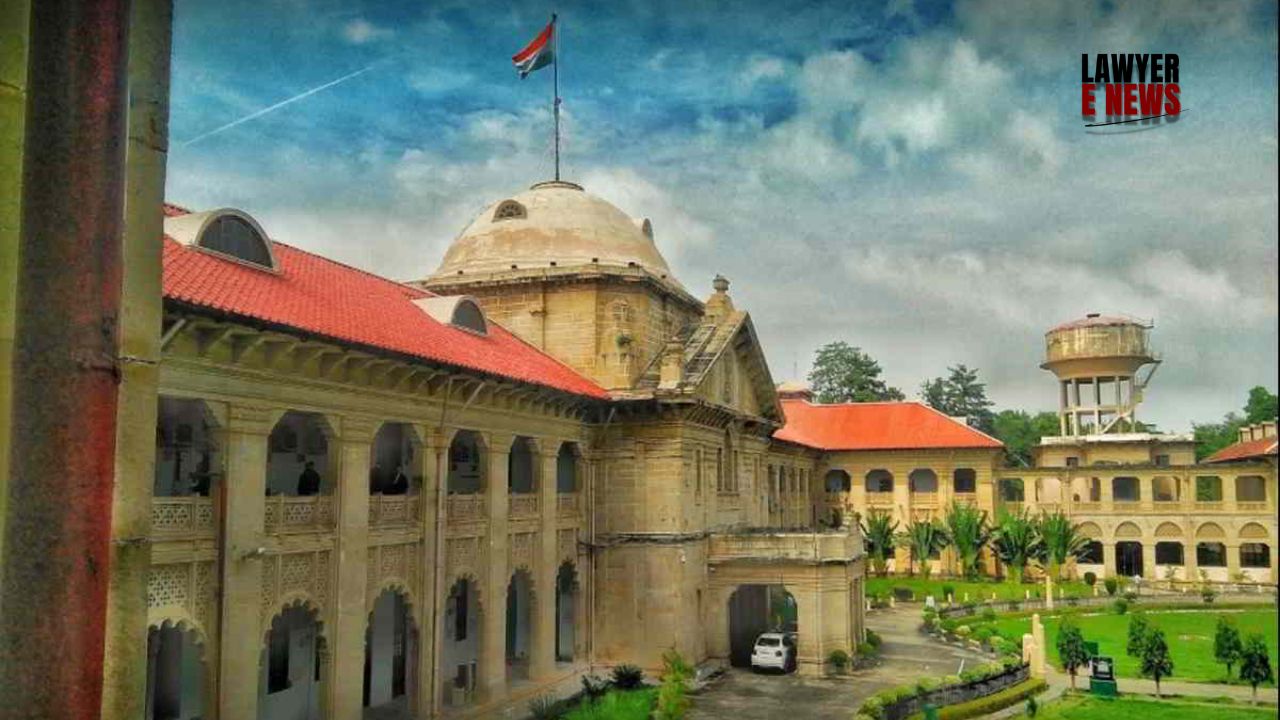-
by Admin
15 February 2026 5:35 AM



Allahabad High Court overturning their conviction for murder, rioting, and unlawful assembly under Sections 147, 148, and 302 read with Section 149 of the Indian Penal Code (IPC). The High Court found multiple inconsistencies in the prosecution's case, including an anti-timed First Information Report (FIR), unreliable witness testimonies, and significant procedural lapses in the investigation, concluding that the prosecution failed to establish guilt beyond reasonable doubt.
The case arose from a murder that allegedly took place on January 6, 2013, in Mathura, Uttar Pradesh. The FIR, filed by the victim’s brother, Bacchu Singh (PW-1), claimed that the accused ambushed and attacked the victim, Suresh Chandra, while he was in a mustard field. The appellants, who were related to individuals with previous enmity with the victim’s family, were accused of assaulting Suresh with firearms, knives, and other weapons. Based on this account and witness testimonies, the trial court had convicted the appellants in 2019.
The High Court identified several crucial legal points that cast doubt on the conviction:
Anti-Timed FIR and Its Credibility:
The appellants argued that the FIR was lodged after an unreasonable delay and possibly after the post-mortem examination, raising suspicion that it was filed as an afterthought.
The High Court agreed, noting discrepancies in witness testimonies regarding the timing of the FIR. Witnesses stated that the FIR was signed on blank papers and that there was no reference to the FIR in the post-mortem report, indicating the possibility of embellishment.
The Court held, “The delayed FIR raises suspicion of afterthought and embellishment, weakening the prosecution’s case.”
Inconsistent Testimonies of Key Witnesses:
The primary witnesses, PW-1 (Bacchu Singh) and PW-2 (Vikram, the victim’s son), provided conflicting accounts regarding critical aspects of the incident, including the timing of police notification, the conduct of the inquest, and the identification of assailants.
The High Court noted that these contradictions undermined the credibility of their accounts, especially in the absence of corroborative evidence.
“Testimonies riddled with contradictions cannot be relied upon to convict, particularly in the absence of corroborative evidence,” the Court observed.
Procedural Lapses in Investigation:
The investigation was marred by serious lapses, including the failure to collect blood-stained clothes, absence of independent witness statements, and inconsistencies in the inquest process.
The Court emphasized that such procedural deficiencies further weakened the prosecution's case, necessitating the benefit of doubt in favor of the accused.
The Court remarked, “Procedural lapses compounded doubts over the prosecution’s narrative, underscoring the need for benefit of doubt to the accused.”
Motive as a Double-Edged Weapon:
The prosecution cited previous enmity between the victim and the accused as the motive for the murder. However, the Court noted that enmity can be a double-edged sword, serving both as a motive for crime and as grounds for false implication.
The High Court, referencing the Supreme Court’s observations in similar cases, held that motive alone, without reliable supporting evidence, was insufficient for conviction.
Failure to Establish Guilt Beyond Reasonable Doubt:
The Court concluded that the prosecution failed to prove the appellants' guilt beyond a reasonable doubt due to unreliable witness testimonies, defective investigation, and lack of corroborative evidence.
"The convictions were unsafe and liable to be set aside," the High Court stated, allowing the appeals and acquitting the appellants.
The High Court allowed the appeals, setting aside the trial court's judgment, and acquitted the appellants of all charges. The judgment underscores the importance of prompt FIR filing, consistent witness testimonies, and rigorous investigative procedures in criminal cases. The decision reflects the judiciary's cautious approach in cases where procedural lapses and unreliable evidence create doubt, highlighting the principle that a conviction cannot rest on speculation or conjecture.
Date of Decision: October 24, 2024
Hakim and Others v. State of U.P.
